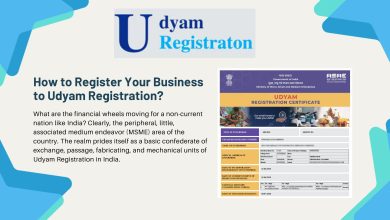Financial Freedom: Achieving Your Money Goals In Your 20s

Financial freedom is the ability to have enough money to live without worrying about money. It means having the financial security to take risks and make investments. Also, have the freedom to pursue personal interests and hobbies.
It is essential because it allows people to feel secure and not worry about money. It also enables people to make decisions about their lives without worrying about their finances.
Achieving financial freedom in your twenties is possible. But it requires dedication and commitment. You can build and maintain financial security and freedom with the right strategies and discipline.
Here are the steps to becoming financially independent in your twenties.
Ways to Gain Financial Independence
1. Set Realistic Goals
If you are looking for ways to become financially independent, setting realistic goals is one of the most important things you can do. It is important to ensure that you create goals that you can achieve. Otherwise, you may become discouraged and give up on your dreams of financial freedom.
Here are some tips for setting realistic goals to help you become financially independent.
First, determine what financial independence means to you. What do you want to be able to do when you are financially independent? Do you want to be able to retire early, buy a new house, or travel the world? Once you have a clear idea of what you want to achieve, it will be easier to set realistic goals.
Next, create a plan to reach your goal. Write down the steps you will need to take to achieve financial freedom. Make sure to include small milestones you can build on as you work towards your goal.
Remember to include timelines for each step so that you can track your progress and stay motivated.
2. Start Investing Early
Investing early in your twenties is one of the best ways to become financially independent and secure a prosperous future. Investing early has numerous benefits, including compounding interest, tax breaks, and less risk.
It can also help you take advantage of tax breaks. Some investments, such as IRAs and 401Ks, offer tax breaks that can help you save money in the long run.
If you want to start investing in your twenties, there are some critical steps. Build an emergency fund. This should be 3-6 months of living expenses. This will ensure you are prepared for any unexpected expenses or job loss.
You should start investing in a retirement account. This could be an IRA, 401K, or other retirement account. Investing in a retirement account will help you take advantage of tax breaks and give you more time to grow your money.
Finally, you should diversify your investments. While stocks are a great option, you should consider investing in real estate or other investments. This will help you protect your investments and reduce risk.
3. Manage Your Spending
One of the most important steps to becoming financially independent is to create and stick to a budget. A budget can help you track your income and expenses, plan for future goals, and reduce your chances of overspending.
To create a budget, you’ll need to calculate your total income and subtract any necessary expenses. This can be your rent, car payments, and groceries bills. Once you have your total, you can save money for other areas such as savings, investments, or entertainment.
It’s important to track your expenses and compare them to yours. Additionally, it’s important to look for ways to reduce spending. This could include cutting back on dining out, cancelling unused subscriptions, or finding cheaper alternatives like transportation.
Finally, try to save money regularly. This could mean setting aside a certain amount each paycheck or trying to put away any extra income.
By consistently setting aside money, you’ll be able to build a cushion of savings that can help you become financially independent. With a little bit of effort, creating a budget, tracking expenses, and saving money can help you reach your financial goals.
4. Pay Off Debt
Taking control of your finances and reducing debt can be daunting, but you can use strategies to make the process easier.
Consolidation and refinancing are two of the most effective methods for reducing debt and becoming financially independent. Debt consolidation is a common method many individuals use to pay off large debts.
It helps manage money and reduce monthly interest payments. If you have bad credit, consolidating debt may be tough.
Fortunately, loans are available for those with bad credit who need financial assistance in paying off their debts. These loans require no cosigner or collateral and are often faster and easier to acquire than traditional bank loans.
Applicants must provide proof of their current income and other details without a guarantor. These details must demonstrate their ability to repay the loan amount requested.
Becoming Financially Independent When You Have Lost Your Job
If you’re in your twenties and have recently lost your job, you’re likely looking for a way to get back on track financially. Borrowing is the only choice for many. Fortunately, poor credit loans are easily available to people without a job.
With a bit of research and proper financial planning, one can secure loans for the unemployed with bad credit and no guarantor if taken from direct lenders. These loans will help them with the instant cash they need to move forward. Many banks offer loans specifically designed for those without a steady income or job security.
Unsecured personal loans typically require no collateral, such as a car or house. They may be available with relatively low-interest rates for qualified applicants. These loans are also often easier to qualify for than traditional bank loans. Here, lenders don’t need to worry about potential job losses impacting repayment ability.
Whichever method you choose, make sure to weigh the pros and cons before applying for any loan!
Conclusion
Being financially independent in your twenties is incredibly important. It is a rewarding step in your career, but many young people don’t know where to start. Without a clear understanding of the strategies for achieving financial freedom, you may be trapped in a debt cycle.
With the right strategies mentioned in this blog and dedicated work, you can take control of your finances and secure your financial future.




